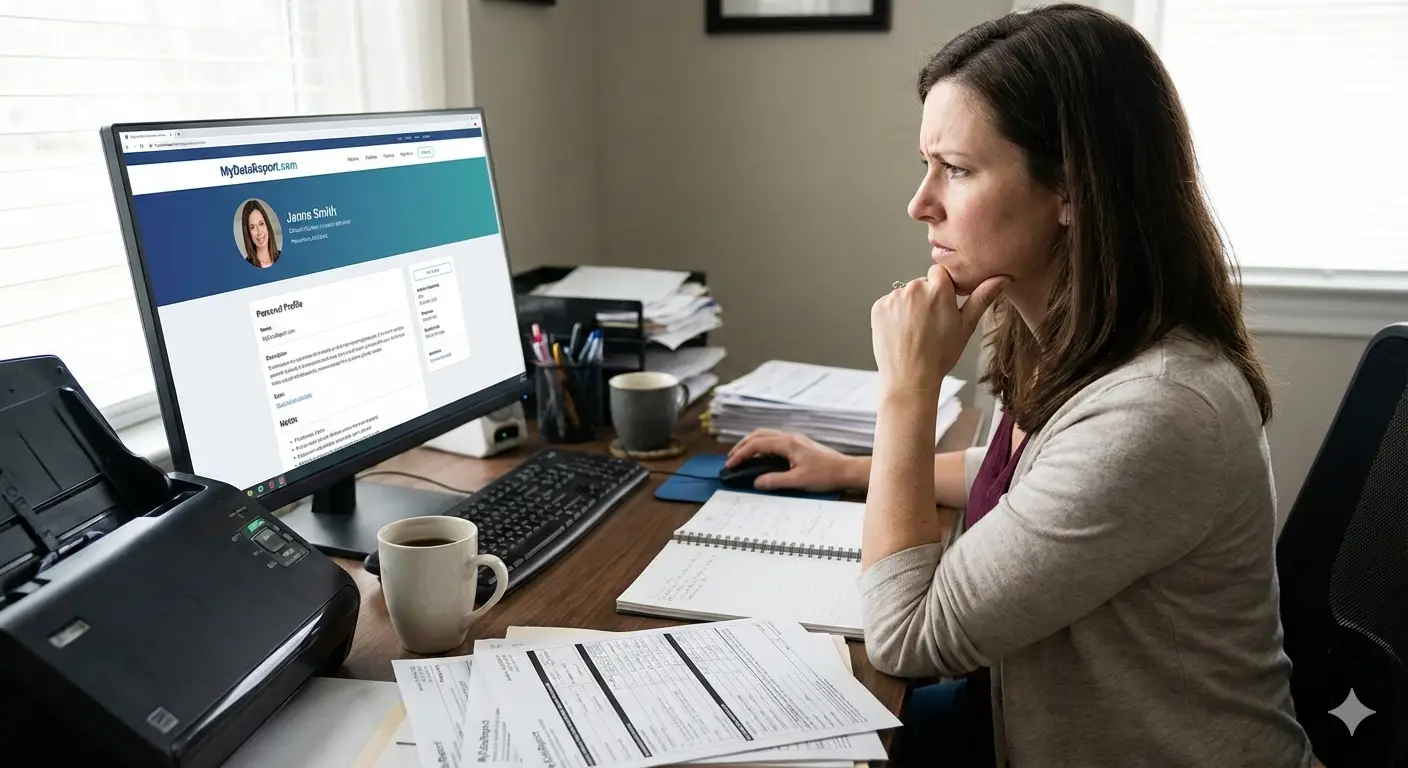What can a private investigator do legally?

Hiring a private investigator often brings up questions about what’s actually allowed. Can they follow someone? Record conversations? Access sensitive information? These questions come up as people learn the full range of what private investigators do—and what they can’t do—especially when legality is a concern.
The truth is, while private investigators do have tools and access beyond what most people can legally use, they are still bound by strict state and federal laws. The best investigators know how to work within those legal limits to uncover facts discreetly, ethically, and—most importantly—lawfully.
In this post, we’ll break down exactly what private detectives are legally allowed to do, what they can’t do, and why staying on the right side of the law protects both the investigator and their clients.
Understanding a PI’s Legal Boundaries
Private investigators are not law enforcement officers, which means they can’t make arrests, execute warrants, or break the law to get information. But that doesn’t mean they’re powerless.
They are licensed professionals (in most states) who are trained to:
- Gather and interpret public data
- Conduct lawful surveillance
- Locate people through legitimate research techniques
- Document findings for use in civil or legal matters
That said, what a PI can do varies slightly by state. Some states allow limited access to DMV records or require different licensing levels for armed vs. unarmed surveillance. But the legal principles below apply broadly across jurisdictions in the U.S.
In North Carolina, private investigators are licensed and regulated by the Private Protective Services Board. To operate legally, the NC requires a PI license, and applicants must meet strict experience, training, and ethical standards. If you're hiring a PI in North Carolina, it’s important to confirm that they hold an active license and understand the specific laws governing surveillance, privacy, and investigative conduct in the state.

What Private Investigators Can Do Legally
While private detectives don’t have police powers, they are legally authorized to perform a wide range of investigative tasks—so long as they operate within the boundaries of the law. Here’s what they can do in most states:
Conduct Surveillance from Public Spaces
PIs can observe and document someone’s behavior as long as they remain in public areas—like sidewalks, parking lots, or other places where there’s no expectation of privacy. They can take photos or video and document movements that don't violate privacy laws and may support legal or personal cases.
Access Public Records and Commercial Databases
Investigators legally gather information from:
- Court and property records
- Bankruptcy filings and business registrations
- Licenses and permits
They may also use paid investigative databases that aggregate public information in ways the average person cannot easily access.
Perform Background Checks
With proper consent or when legally allowed, PIs can compile detailed profiles including criminal history, financial red flags, and past legal disputes. A background investigation is often done for employers, attorneys, or individuals verifying someone's background, particularly those trying to identify if an individual has a criminal record.
Interview Witnesses and Known Associates
Private detectives are allowed to contact and speak with people relevant to a case—family members, neighbors, coworkers, or former acquaintances—so long as they don’t misrepresent their identity or coerce the person.
Use Skip Tracing Techniques to Locate Individuals
If someone has “gone off the grid,” investigators can use a combination of records, contacts, and online behavior to track them down. This is especially useful in civil cases, custody disputes, or locating witnesses.
Work Undercover in Some Scenarios
Depending on the state and situation, PIs may legally work undercover—for example, posing as a customer or employee to observe business operations or investigate internal misconduct.
Each of these activities is legal when done correctly—and professional investigators know how to stay within those lines while delivering actionable results.
What Private Investigators Cannot Do
Despite what movies and TV may suggest, private detectives are not above the law. In fact, overstepping legal boundaries can jeopardize a case—and lead to serious consequences for both the investigator and the client.
Here are some things PIs cannot legally do:
Trespass on Private Property
Investigators cannot enter homes, backyards, gated areas, or businesses without permission. Surveillance must be conducted from public spaces or places where they’ve been granted legal access.
Hack Phones, Emails, or Computers
Accessing someone’s private digital communications—without consent or legal authority—is a federal crime. PIs can analyze publicly available content or metadata, but cannot install spyware or break into digital accounts.
Wiretap or Record Conversations Without Consent
In many states, recording a phone call or in-person conversation without all parties' consent is illegal. PIs must follow one-party or two-party consent laws, which vary by state.
Impersonate Law Enforcement or Government Officials
PIs cannot present themselves as police officers, federal agents, government employees, or members of law enforcement agencies. They must be transparent about their identity and role to avoid deception or legal violations.
Access Protected Records Without Authorization
Private investigators cannot access:
- Medical records (protected under HIPAA)
- Credit reports (protected under the FCRA)
- Tax returns
- Sealed court documents
These records are not public databases and require proper legal channels, such as subpoenas or the subject’s consent.
Physically Detain or Arrest Anyone
Only law enforcement officers can make arrests or detain people. A PI can observe and report criminal behavior—but cannot intervene physically or restrain someone as they do not have law enforcement authority to do so.

Why Legal Compliance Matters
Staying within the legal framework isn’t just about avoiding trouble—it’s about protecting the integrity of your case. Whether you're working through a custody dispute, trying to prove fraud, or simply seeking peace of mind, a private detective's findings only help if they’re gathered lawfully.
Here’s why legal compliance is critical:
Evidence Must Be Admissible in Court
Illegally obtained evidence—like unauthorized recordings or trespass-based surveillance—can be thrown out in court. Worse, it can damage your credibility or even backfire legally.
Client Protection
If a PI breaks the law on your behalf, you may be held liable, especially in civil matters. Working with a licensed, ethical investigator ensures your interests are protected.
Licensing and Reputation
Professional investigators are licensed and regulated in most states. Violating legal boundaries can result in loss of licensure, lawsuits, and permanent damage to their business—so the best investigators take compliance seriously.
In short: following the law isn’t a limitation—it’s a safeguard for you, your case, and your peace of mind.
Do Private Investigator Laws Vary by State?
Yes—while the core legal boundaries are similar across the U.S., certain private investigator laws and licensing requirements do vary by state. That includes:
- Licensing: Some states require thousands of hours of documented experience, others have no licensing requirement at all.
- Consent laws: States differ on whether one or both parties must consent to being recorded.
- Access to records: Access to DMV data, court filings, or proprietary databases may differ depending on local laws.
This is why it’s important to hire an investigator who is not only licensed, but experienced in your state’s legal system. They’ll understand how to navigate jurisdiction-specific rules and ensure everything they do on your behalf holds up legally.
Conclusion: What a Private Investigator Can Do—Legally
A licensed private investigator can uncover facts, verify suspicions, and help you make informed decisions—but only if they follow the law. The most effective investigators know how to push right up to the legal line without crossing it, ensuring your case remains strong, admissible, and defensible.
If you’re considering hiring a private investigator, start with one who understands the legal landscape as well as the investigative process. Contact Davis & Forest Investigative Group today for a confidential consultation—we’re here to help you uncover the truth, the right way.
Recommended articles
Explore expert advice, industry trends, and case studies from our seasoned investigators. Stay informed with the latest updates in the world of private investigations and security.
Schedule a consultation
Ready to work with trained professionals who can uncover the truth and protect what matters most? Contact Davis & Forest Investigative Group today for trusted private investigator services. Our experienced investigators are ready to provide thorough, discreet, and results-driven investigations.
Your solution starts here
Davis & Forest Investigative Group's team is ready to help. Contact us today to discuss your case or request a consultation.




